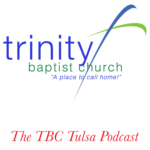
This is an exposition of Lamentations 2:1-22. This message by Pastor Rod Harris was delivered at Trinity Baptist Church on Sunday evening, January 14, 2018.
Intro:
No one enjoys suffering, if you do I need to see you immediately after the service and we will see if we can get you some help! No one enjoys it, seeks it out or courts it, yet it is universal. Life in the sin-sick, fallen world is a life of heartache and suffering.
[sections collapse="always"][section title="Read More"]
It is not a matter of “if” but rather of “when.” Suffering is a fruit of the fall. Once Adam rebelled sin and suffering entered the world. While it is not sought after it is not wasted on the people of God. In the hand of a loving, sovereign God suffering becomes a refining fire. Suffering in the Hand of Providence becomes a means of purifying. Fundamental to our understanding of God is that He makes all things work together for the good of those who love Him and are called according to His purpose. This is not a matter of blaming God for suffering but rather recognizing that God often uses evil as an instrument for accomplishing His good purpose. If you doubt that look at the cross.
Consider Acts 4:27-28 - for truly in this city there were gathered together against your holy servant Jesus, whom you anointed, both Herod and Pontius Pilate, along with the Gentiles and the peoples of Israel, to do whatever your hand and your plan had predestined to take place.
Or Hebrews 12:2 - looking to Jesus, the founder and perfecter of our faith, who for the joy that was set before him endured the cross, despising the shame, and is seated at the right hand of the throne of God…
Judas, the religious establishment in Jerusalem, Herod, Pilate and all those involved in death of Jesus acted according to their own conscience and yet did exactly as God had determined in eternity past. They were not “forced” or coerced into acting in this way but rather each did according to his own will. There is no greater evil than that the eternal Lord of glory was abused, tormented, mocked and brutally executed and yet it was the Father’s will. It was, in the words of the writer of Hebrews, “the joy set before him.” My point is, when suffering comes we, the people of God, know that God always has both a plan and a purpose in it.
The year was 586 BC, the city of Jerusalem lay in ruins. Jeremiah wept. He also composed a lament and that lament proves to be invaluable as we consider how we are to respond to suffering. Our text this evening is the second chapter of the book of Lamentations.
Text: Lamentations 2:1-22
Chapter 2 is another funeral dirge or funeral song.
The prophet continues to grieve over the devastation brought at the hand of Babylon.
But like the first chapter he is quick to acknowledge the true source of this sorrow.
God has come in judgement of the nation.
Babylon is the instrument but the devastation has come because God has withdrawn His hand of protection.
[Read: 2:1-10]
As we work through chapter 2 we learn that…
Thesis: The godly respond to suffering with understanding, sorrow, repentance and faith.
In this song we find 4 godly responses to suffering.
- A godly response to suffering understands the devastating consequences to sin and rebellion. (2:1-10)
- A godly response to suffering weeps over the heartache and brokenness of those who suffer even when such suffering is deserved. (2:11-13)
- A godly response to suffering highlights the Hand of Providence in all things. (2:14-17)
- A godly response to suffering urges godly sorrow and genuine repentance. (2:18-22)
Conclusion:
Suffering is inevitable, how are we to respond? The godly respond to suffering with understanding, sorrow, repentance and faith.
[/section][/sections]
